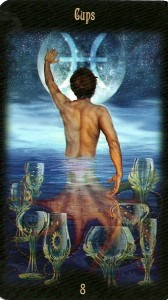One of the things which has drawn me to the writings of Charles De Lint is how he thinks of the movement between what we consider reality, and what lies beyond it. His works of Urban Fantasy place the people and creatures of myth, legend, and story into our everyday lives and weave the connections giving us answers to “Why is that…?” and “What do we do now?” I like that his characters are real, meaning flawed and living lives of decisions in the moment, making mistakes and correcting them and living…most of all living. How he sees the intersection of the mundane world and the mystery behind it all is through the between places. Those spaces between one place and another. Like a doorway or a window frame, the edge of a river, the place where shadow meets the light on pavement, the grass between a home’s yard and the road, and so on and so on. Places which are neither one place or the other, neither here nor there, are the ways in which we slip between states, letting go of what we were and not yet becoming what we will be.
Transformation is heralded by liminal states. And not just in fiction, but in life. Marriage, divorce, having children, getting a career, changing careers, moving to another state or country, confronting an idea or action or activity which creates an “Ah Ha!” all bring on liminal states in which we transition from who we were and leave us in a place where we are not yet what we will eventually become. And these are just the biggees that we recognize at the time. There are often smaller liminal moments that we recognize only dimly and some we don’t recognize at all until they are complete.
The challenge of an examined life it to awaken to the liminal in life. To be aware of those moments and take advantage of them to investigate and truly inhabit the soul in a way that the mundane world keeps us from. It’s to live the life of a poet, often overwhelmed by the amount of life that comes flooding into us, becoming over sensitized to the world around us, learning who we truly are by living without rules and without limits. To walk a spiritual path is to seek out the liminal in life in order to fully experience the self. To ‘Know Thyself’ as is inscribed on the Temple of Apollo at Delphi is to move beyond the everyday to find the liminal spaces. And then come back to the everyday transformed and to build a life based on who you are now. So that you can find the liminal again….and again….and again.

